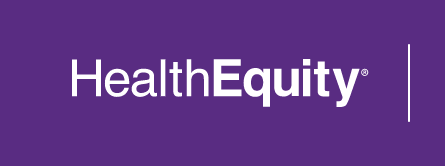If you strike up a conversation with me, odds are, we’ll be talking about healthcare and Health Savings Accounts (HSAs) at some point. It’s not just because HSAs are the better part of my life’s work and form the core of HealthEquity, the company I founded in 2002. It’s also because the cost of healthcare—and complexity of paying for medical treatments and medications—is still one of Americans’ biggest financial concerns.
To get right to the point, in the two decades of HSAs on the market, millions of Americans have been able to use tax-free funds in their HSAs to pay for healthcare. HSAs are a powerful savings account, but strict eligibility requirements, including enrollment in a high-deductible health plan (HDHP) exclude too many people.
American families need help to access affordable healthcare options
There are many underserved and at-risk families and individuals facing rising out-of-pocket healthcare costs. In fact, one survey discovered 54% of Americans can’t afford an unexpected $400 bill. This is what HSAs can help solve. When people have an HSA, they can use the tax-free funds in their account to pay for qualified medical expenses. Beyond helping with short-term financial concerns, HSAs can also help workers build savings to cover expenses in retirement.
Overall, there are ways to truly help marginalized and vulnerable people—from those on Medicare and Tricare to Veterans and those covered through the Indian Health Service (IHS). This is what I want to talk about today:
-
How HSAs give millions of Americans peace of mind
-
Why it’s a problem that not everyone can enroll in an HSA-qualified health plan
-
How Congress is trying to solve these problems
-
Why HealthEquity supports solutions to expand access to HSAs
-
What are future opportunities to serve people in need
How do HSAs help Americans better afford healthcare?
It’s clear HSAs can help workers and their families save for healthcare expenses. In the two decades of HSAs on the market, they’re a prominent fixture in the nation’s healthcare system. According to the latest figures from Devenir Research, Americans now hold more than $116 billion in nearly 36 million accounts and the average balance of funded accounts is $3,948. These balances are boosted by employers. Our data reflects 81% of large employers (over 1,000 employees) contribute money into their workers’ HSAs. At the end of the day, HSAs can help people cover both planned and surprise health expenses.
HSAs can help working class families save for their healthcare costs. According to Devenir, 75% of those with an HSA are in a zip code where the median household income is less than $100,000.
In addition to helping workers build up a nest egg and a healthcare emergency safety net, HSAs offer even more benefits. In many cases, HSA-qualified plans offer lower premiums compared to traditional health plans.
How can more people access an HSA?
It’s good news to see a growing number of employers now offer an HSA-qualified plan, also known as HDHP + HSA. While the numbers have grown over the years, there are still too many Americans without access to an HSA-qualified health plan.
What keeps me up at night are the hard-working people within the statistics. Included in the population of people without access to an HSA are marginalized people who are excluded from the benefits. With potential legislative changes there are opportunities to make a difference for people so they can also access tax-free ways to save and grow funds for healthcare expenses.
Congress is working on solutions to expand HSAs
I just covered many ways HSAs help people afford healthcare services. None of this would have been possible without the 2003 passage of the Medicare Prescription Drug Improvement and Modernization Act and the codification of HSAs. With that legislation, employers and individuals felt confident the accounts were stable and backed by law. And it allowed private industry to create HSA solutions to simplify how Americans could access the new accounts.
We’re at another crucial point in time where we need that type of governmental support again. We face new challenges and need fresh solutions.
Families deserve access to affordable, effective healthcare. It’s a problem when deserving people are blocked by how confusing, difficult, and expensive healthcare can be. That’s why it’s encouraging to see promising developments on Capitol Hill with provisions to benefit so many people—Veterans, Native Americans, those on Medicare, and more.
Support for proposed legislation in the House Committee on Ways and Means
This week, members of the House Ways and Means Committee will examine two proposed bills that, if enacted, would update various HSA rules. Among other provisions, this legislative package would:
-
Clarify that participating in a direct primary care service arrangement would not make an individual ineligible to contribute to an HSA.
-
Change current rules that exclude seniors enrolled in Medicare from making HSA contributions. The proposal would permit seniors who are eligible for Medicare but only enrolled in Part A to remain eligible to contribute to their HSAs.
-
Permit high deductible health plans to provide coverage for up to $500 in mental health benefits before the deductible is met.
-
Eliminate current rules that impose a waiting period on HSA contributions when tribal members receive non-preventive care at Indian Health Service (IHS) facilities. Under the proposal, tribal members who are otherwise eligible to contribute to an HSA will not lose that eligibility because they receive care at an IHS facility.
These are the types of creative solutions we need to be able to help more people access better care.
Working together to create a future where more Americans have tools to afford healthcare
As the proposed bills work their way through Congressional committees, I offer my support for the legislative process and bipartisan ways to expand access to HSAs. I also look forward to a future where we continue to see savings vehicles provide support to all Americans.
HealthEquity does not provide legal, tax or financial advice. Always consult a professional when making life-changing decisions.



